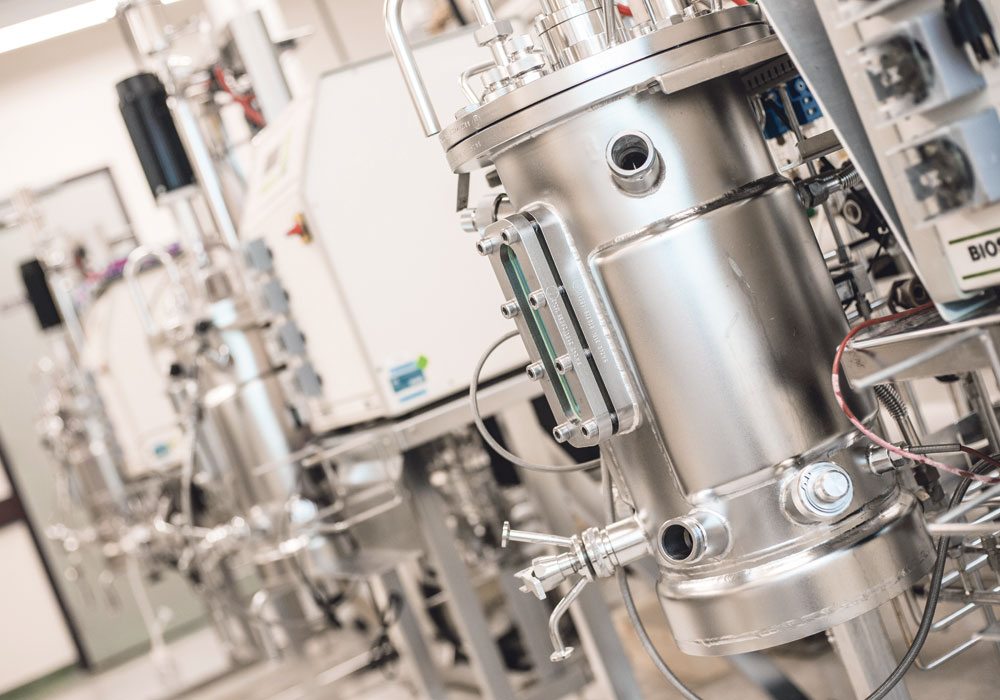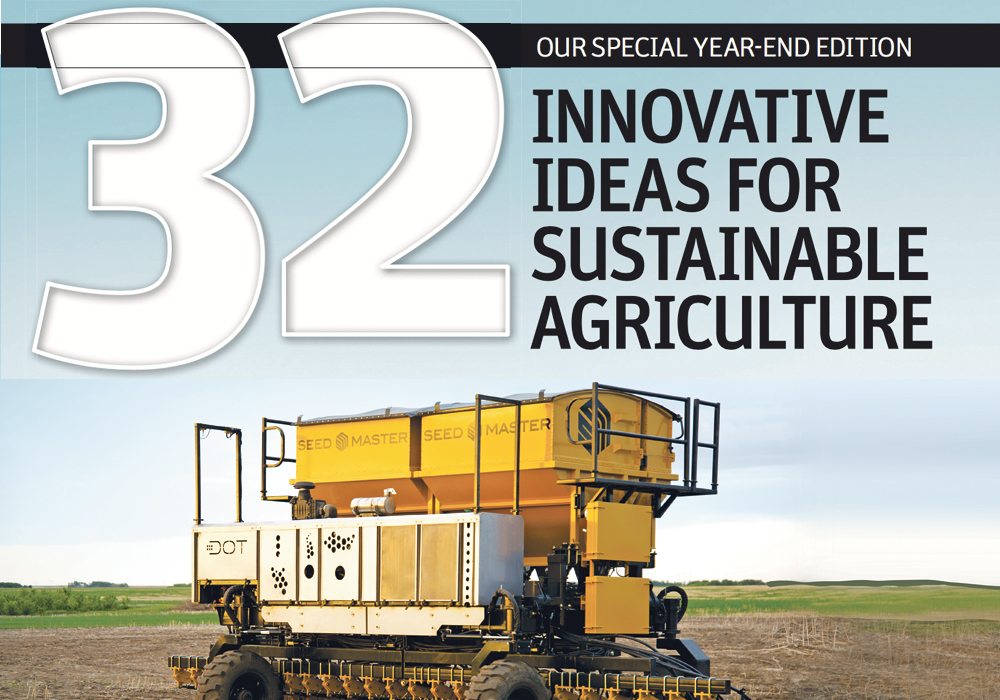Can a microscopic endophyte increase crop yields on your farm?
Indigo, a Massachusetts-based biotech company, thinks so and is investing tens of millions of dollars in research and development to prove that claim.
Indigo specializes in the identification, isolation and commercial production of beneficial endophytes.
An endophyte is a microbial life form — often bacterial or fungal — that lives in the tissues of a plant.
Until recently, the relationship between endophytes and the plants in which they live was not well understood.
Read Also

Canada told trade crisis solutions in its hands
Canadians and Canadian exporters need to accept that the old rules of trade are over, and open access to the U.S. market may also be over, says the chief financial correspondent for CTV News.
Other stories in The 2017 Innovation Issue:
- New genetic tools offer way to restore cattle vigour
- Technology can help breed better cattle
- Bee buzzes critical to calculating crop pollination
- Fungus could aid plant growth, reclaim oil sites
- Cracking the megapest genetic code
- Genetic mapping vs. genome sequencing
- French robot prowls the chicken coop so you don’t have to
- New laser technology proves successful for B.C. orchard
- High-tech deterrent devices protect crops from … intruding elephants?
- Diamondback moths focus of Cornell study
- VIDEO: Print your own parts?
- Bees may be serving up humanity’s next big food … and it isn’t honey
- Big doubts about big data
- The little plane that did
- Soil mapping soon to be more usable
- Managing fields could soon move to plant level
- GM pollen: it gets around
- Autonomous vehicles not on the radar for most farmers
- Farm wi-fi connectivity opens new world of possibilities
- Nanotechnology to alter animal health, food systems
- As big data comes to the farm, are policy makers keeping up?
- Farmers not rushing to grab digital tools: survey
- Connecting the DOTs
- Hands-free field test
- Researcher understands farmer doubts about hands-free farming
- The trouble with telematics
- Sensor sensibility
- The discovery that could shake up the beer industry
- Grow your own clothes
- Blockchain technology offers food safety, traceability and more
- Supercluster makes big innovation pitch
- Quicker, cheaper biofuel production in the works
- Alternatives to livestock antibiotics are difficult to assess
- A revolution is coming
But with the assistance of new gene sequencing tools and artificial intelligence platforms, interest in endophytes and the role they play in plant development has expanded, along with the development of new commercial products.
Indigo, for example, has already developed a number of commercial products, which according to the company have the ability to boost yields in winter wheat, cotton, corn and soybeans.
It is also working on a product for rice.
Indigo’s concentrated endophyte products are applied as a seed coating and have shown significant yield-boosting potential, particularly under stressful growing conditions.
“In the example of winter wheat, we’re using a bacterial endophyte … that clearly enhances seedling growth,” said Kevin Kephart, head of industry relations with Indigo.
“We see faster coleoptile growth in wheat, faster root growth and after just a few days of germination, we’ll see a larger root mass … that allows the plants to capture resources out of the soil, whether that’s water or phosphorus or potassium or nitrogen.
“We’re also seeing a greater number of … head bearing tillers in wheat and we see a greater number of spikelets per head as well.”
Indigo products that have been field tested in Kansas under stressful conditions such as excess heat and drought have demonstrated a yield increase of eight to 16 percent relative to winter wheat crops that were not treated.
In corn, certain hybrid varieties that were treated with Indigo growth promotants produced yields 70 percent higher than those of untreated corn fields sown with the same seed variety, again under drought conditions.
“We don’t see as much of a benefit under irrigation,” Kephart said.
The process of identifying beneficial endophytes, isolating them and increasing them to a commercial scale does not occur quickly or easily.
To identify commercially viable microbes, Indigo visits areas that are affected by drought or heat stress and looks for plants that appear to be thriving under adverse conditions.
Communities of microbes contained in those plants are then analyzed to determine which endophytes are most beneficial to the plant’s health.
Potentially beneficial bacteria are isolated and multiplied in commercial fermentation facilities and field tested before commercialization.
The end result is a concentrated product that can be applied as a seed coating along with other crop inputs such as insecticides or fertilizers.
Indigo’s products for corn, winter wheat, cotton and soybeans are already being used in the United States.
Kephart said additional products are likely to be developed in the future for growers in Western Canada.
In Saskatoon, the Saskatchewan Research Council works with private sector clients such as Indigo to scale up plant inoculants and endophyte-derived growth promotants.
Meghan Gervais, manager of SRC’s Biotechnology Laboratories, said researchers who identify beneficial bacteria or fungi will bring their products to the NRC-SRC Fermentation Facility in Saskatoon to have their products scaled up or multiplied to the point where it can be field tested and taken to the next stage of commercialization.
“We’re really here to be the middle ground, where clients can take a product that they’ve developed in a lab and scale it up to commercial quantities,” Gervais said.
SRC is currently working with Indigo to scale up beneficial microbes, some of which may have commercial applications in Saskatchewan.
“The project team, using bio-prospecting … has identified potentially beneficial microbes for different crops — some of them pertinent to Saskatchewan, like wheat, for instance — and they’re looking at how those microbes, working as endophytes … can optimize plant growth,” Gervais said.
“It (commercializing endophytes) is about finding the right microbe … and then figuring out how to grow or multiply that microbe in a way that will be cost effective enough to apply it back as an input into agriculture.”
In many ways, endophytes are similar to rhizobia-based inoculants that are widely used by pea producers in Western Canada.
The main difference is that rhizobia-based inoculants are derived from soil-borne organisms, whereas endophytes exist within plants themselves.
Gervais said endophytes can promote plant growth in a variety of ways, such as conferring disease resistance, improving water use efficiency or enhancing tolerance to abiotic stresses.


















